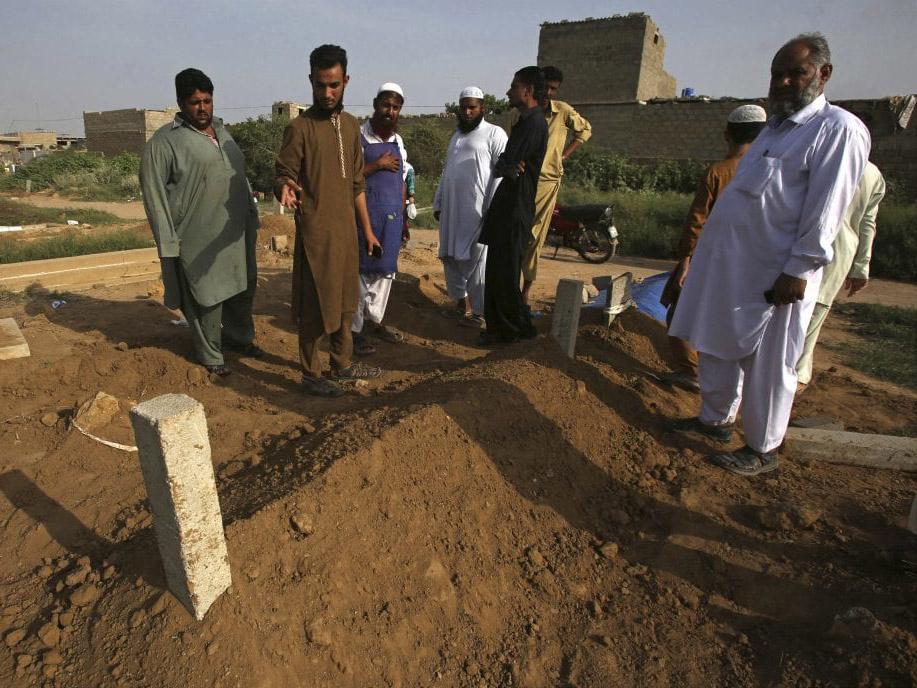Two Pakistani teens accused of plotting to elope tied down and electrocuted by own families in 'honour' killing
Neighbouring boy and girl, 17 and 16 respectively, executed by own families in horrific incident outside Karachi

Stories of “honour killings” in Pakistan most often come from the country's far reaches where tribal customs prevail. But the latest “atrocity,” as it was called by Zia Ur Rehman, the journalist who broke the chilling, heartbreaking story, “was in Karachi, the largest urban centre of Pakistan, where the laws of the country apply in full force.”
All so-called honour killings are gruesome, burnings, beatings, stonings. This one appears uniquely horrific.
A boy, 17, and a girl, 16, were neighbours in a suburb of Karachi. The girl ran away from home. The boy reportedly waited for her. After they were tracked down, they were accused of plotting to elope. Ultimately, by order of the council of elders in their community and for the honor of that community, members of their own families executed them by electrocution.
“The boy and the girl had fallen in love and finally they ran,” an advocacy group worker, Kamal Shah, who has spoken with members of the community told The Washington Post through an interpreter. As a result, they paid the heaviest price.
The details come largely from Rehman's story in Pakistan's The News International, an English language paper, and from police accounts there and in other Pakistani media.
Both the boy, Rehman Afzal, and the girl, Bakht Taj, lived in Ali Brohi Goth outside of Karachi, Pakistan's most populous city, a hub of commerce and industry situated on the Arabian Sea. Their families come from Pakistan's Pashtun community which, in rural areas in particular, is heavily influenced by tribal councils called jirgas, which mediate and sometimes settle disputes, often in cruel ways.
In defiance of the long-standing practice of arranged marriage, the two got to know each other. Whether they were really planning on eloping remains to be established. Clearly they had something planned but perhaps only they knew for sure what it was.
In August, The News reported, the girl disappeared from her home with some cash and jewellery, headed for a house in a nearby area where she was planning on hiding out. The boy remained in his own home so as not to “arouse suspicion.”
When she went missing, the girl's parents searched her bedroom and discovered a mobile phone SIM card that belonged to the boy. They used that information to track the girl down and brought her home.
The families weren't on good terms to begin with, Kamal Shah said. “They didn't like each other.”
Both families were enraged, police told Dawn, an English-language newspaper in Pakistan. According to The News the two families met to discuss the situation.
The young man's father, Muhammad Afzal, fearing “violent retribution” from the girl's family, offered a marriage proposal between the two runaways, The News said, to settle the score. He also offered up, for good measure his other two daughters, “to pacify Taj's parents,” as Zia Ur Rehman reported. The practice, by which girls are forced into marriage to resolve disputes or offences committed by their male relatives, is called “vani” or “swara.”
The agreement went to elders of the community, the jirga, on Aug. 15. The head of the council objected to the settlement, however. The teenagers needed to be punished to set an example and to uphold the honor of the community. The punishment, death, would have to be meted out by the families, they determined, police said.
About 11pm on 15 August, police told reporters that the girl was sedated, tied down to a rope and wood cot called a charpoy and electrocuted by her father and uncle. She was “buried that night in secrecy by five tribesmen,” The News reported.
At 3am on the 16th, the boy met the same fate, police told Dawn.
Hundreds of honour killings are reported each year in Pakistan, as The Post's Pamela Constable has reported. Many more killings, almost all of them of women, occur but are never reported, according to the country's independent Human Rights Commission.
In this case, someone, an “informer,” went to police, the local chief, Rao Anwaar told the media. The police staged a raid, conducted an investigation and have taken at least four people into custody, including the two fathers, according to the BBC. They are reportedly looking for the head of the jirga.
But there was another investigative task awaiting authorities, verification of the horrific cause of the deaths of Bakht Taj and Rehman Afzal.
A team of doctors, a magistrate and police want to the graveyard and exhumed the bodies this week. And on Wednesday, a police surgeon who examined the bodies, Qarar Ahmed Abbasi, provided the confirmation.
“There were visible signs of electric shock and torture on both bodies,” he said.
Formal pleas have yet to come from those accused. A police spokesman told Dawn that they had all confessed, saying they acted under pressure from the jirga to protect the honour of the tribe. The News reports that friends of the young man's father claim that he was threatened with retribution from the Taliban if he refused to carry out the jirga's decision.
But stories like this emerge with some regularity. And activists against honour killings expressed deep frustration.
The case, as Reuters' Zoffeen T. Ebrahim wrote, “highlights the influence of tribal councils and social pressures in Pakistan, which are often more powerful than the law.”
This was a situation, Maliha Zia Lari, associate director of the country's Legal Aid Society told Reuters, where the young man's father felt he would get no protection from the government. And the jirga members feared no reprisals.
In such circumstances, Lari said, “laws seem useless.”
The Washington Post
Join our commenting forum
Join thought-provoking conversations, follow other Independent readers and see their replies
Comments
Bookmark popover
Removed from bookmarks